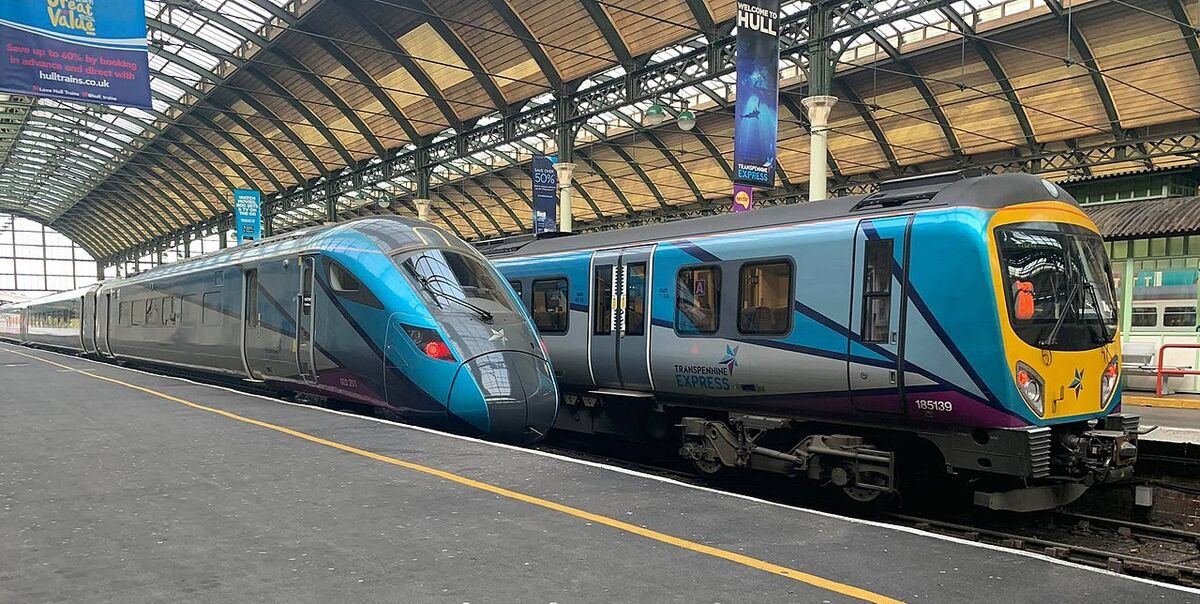BY Mark Westwood | Tuesday 30 November 2021
Transport for the North board members have written to Grant Shapps to call on the Government to fulfil its promises on the Northern Powerhouse Rail network

Leaders from across the North have written to the Transport Secretary to offer alternative proposals for the future of railway infrastructure in the region, after the publication of the long-delayed Integrated Rail Plan.
In the letter to Secretary of State Grant Shapps, the Transport for the North board members expressed disappointment at the “inadequacy” of the IRP, which they said was unacceptable to the North. They said the proposals, published earlier this month, breached commitments the Government had previously made on Northern Powerhouse Rail, and differed from the board’s preferred option, as set out in statutory advice to the Department for Transport.
Councillor Daren Hale, leader of Hull City Council, is the city's representative on the TfN board, which brings together the North’s 20 local and combined authorities, as well as business leaders, to speak with one voice on the transport infrastructure investment needed to boost the North’s economy.
In the letter, the board said it was essential to retain the long-term ambition for the North’s economy, which forms the basis of the region’s Strategic Transport Plan, in order to give confidence to investors and hope to residents and businesses.
Among the points agreed by the board in discussing the implications of the IRP were:
- "The importance of improving connectivity on strategic corridors between Sheffield and Leeds; Sheffield and Manchester; Sheffield and Hull; Leeds and Hull."
- "[The] need to ensure the city of Hull and East Riding are reconnected to the Transpennine mainline and plans for electrification are reinstated as part of improved East West decarbonised freight and passenger connectivity."
They also said the technical work behind the IRP should be published as a matter of urgency, to provide clarity on the basis on which decisions had been taken.
TfN said there was unanimous support from board members to work with the Government to explore ways in which the long-term ambition underpinning the preferred Northern Powerhouse Rail network might be realised. The board requested that Mr Shapps meet with TfN interim chair Councillor Louise Gittins, leader of Cheshire West and Chester Council, and a delegation from the board as soon as possible.
The North has spoken with one voice to make it clear that the Government’s Integrated Rail Plan in its current form is not acceptable
Cllr Gittins said: “The North has spoken with one voice to make it clear that the Government’s Integrated Rail Plan in its current form is not acceptable. That is why our statutory advice to Government is clear that they must think again. Instead of this top-down centralised approach they need to reach out and work with local communities, and businesses.
“Despite our deep concerns that the IRP is woefully inadequate, the TfN Board unanimously agreed that it wishes to explore with Government funding options for the delivery of the preferred NPR: options could include local contributions, including through harnessing local economic benefits.
“We still believe that there is a way forward that will enable them to collaboratively move at pace to prioritise and sequence investment in a way that delivers the early foundations of a modernised rail system for the region. Instead of what looks like years of rail delays to build a network that by the time its finished will not be fit for purpose.
“TfN Board Members remain committed to the long-term ambition for improving connectivity across the North and with the Midlands. We remain firm in our collective belief that the Board’s preferred approach to HS2 and NPR best reflects the unique opportunity to unleash the potential of the North, addresses the imbalance in the quality and extent of the rail infrastructure across the UK, and achieves real, positive, and lasting change for the region.”

